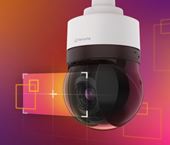Wireless technology is a driver for growth
The wireless technology segment is expected to exhibit a higher compound annual growth rate than the wired technology segment. This growth is attributed to the advantages offered by wireless technology, including enhanced mobility and cost savings in building automation systems. Additionally, wireless technology simplifies installation, especially in existing buildings, and provides reliable network connectivity through various security algorithms. It offers scalability, link reliability, real-time capabilities, and energy independence when used in conjunction with energy-harvesting devices, particularly in building management systems. Furthermore, wireless technology networks find wide-scale applications in healthcare, surveillance, agriculture, and industrial sectors. Notable wireless technologies used in building automation systems include Zigbee, Enocean, Z-Wave, and Wifi.
Energy efficiency is key
The rising costs of energy and the introduction of stringent energy efficiency regulations have underscored the importance of monitoring energy consumption within buildings. Building energy management software plays a pivotal role in enabling building operators and homeowners to continually oversee and assess the energy usage in structures. These systems not only alert building operators and owners about deviations in energy consumption but also furnish actionable insights for achieving energy savings. Companies like Schneider Electric (France), Siemens AG (Germany), and International Business Machines Corporation (US) are among those offering building energy management software. Furthermore, with advancements in technology, manufacturers of building automation systems are placing emphasis on creating user-friendly software for efficiently managing energy consumption within buildings. This development, according to the research, is subsequently spurring global demand for building energy management software.
Emphasis on becoming eco-friendly
The building sector stands out as a significant global energy consumer, consistently accounting for over one-third of the world's total energy consumption. Additionally, it constitutes a substantial contributor to carbon dioxide (CO2) emissions. As noted by the International Energy Agency (IEA), in regions highly reliant on traditional biomass, energy consumption in buildings can represent an astonishing 80% of the entire regional energy use. The proliferation of electrical systems within buildings is further exacerbating energy consumption and carbon emissions. Consequently, the effective and sustainable utilisation of energy resources is paramount.
Significant opportunities for energy and cost savings
In light of this imperative, there is a growing demand for building automation systems. These systems are gaining prominence due to their ability to reduce energy consumption and maintenance costs in buildings. Notably, building automation systems play a pivotal role in optimising energy utilisation, with a particular focus on HVAC and lighting control systems, known for their energy-intensive operations. According to IEA statistics, air heating, cooling, and water heating jointly constitute approximately 60% of global energy consumption within buildings, presenting a significant opportunity for energy reduction. Building automation systems offer the added benefit of automating HVAC and lighting systems, resulting in potential energy savings ranging from 5% to 30% of a building's overall energy consumption.
Moreover, building automation systems provide a proactive approach to building maintenance by enabling early detection of operational issues within equipment. This proactive approach not only prevents unexpected breakdowns but also contributes to reduced building maintenance costs.
Global players
The report profiles major players in the building automation system market such as Honeywell, Siemens, Johnson Controls, Schneider, Carrier, Bosch, Legrand, Hubbell, ABB, Crestron, Lutron, Cisco, Rockwell, Delta, Mitsubishi, Huawei, Beijer and Hitachi.















